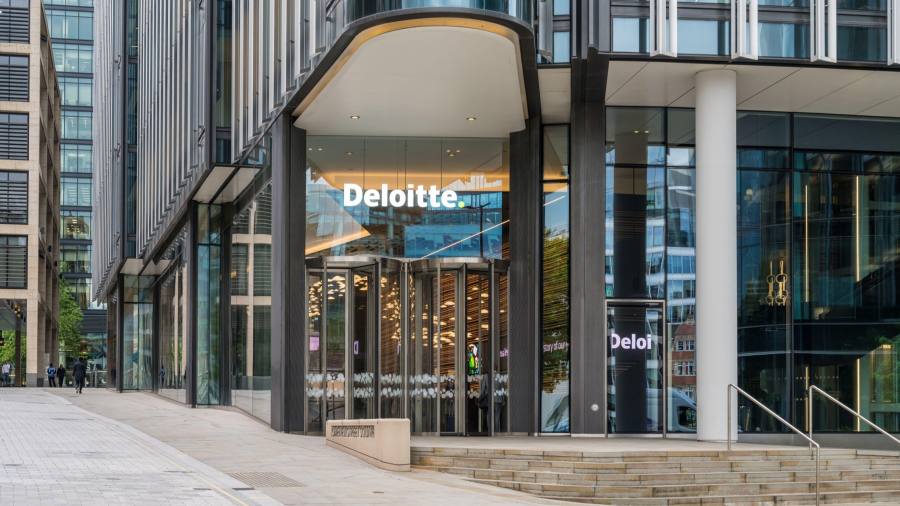[ad_1]
Deloitte has lowered temperatures in its UK offices by 2C in the latest example of a large employer moving to reduce its heating bills and carbon emissions during Europe’s energy crisis.
The accounting and consulting firm announced the plan to its 23,000 staff in the UK this month following similar measures by public and private sector organisations across Europe as the war in Ukraine hits energy supplies.
The temperature in Deloitte’s 22 UK offices had been cut to between 19C and 22C, with thermostats set to the higher end of the range during colder months, said a person briefed on the plan. The reduction, alongside the usual closure of its buildings over the Christmas period, was expected to result in savings of up to £75,000 in December, the person added.
Richard Houston, chief executive of Deloitte UK, said the savings in December would be donated to charity. The firm said it had also lowered temperatures in some of its other offices in Europe.
Germany introduced rules in September capping the temperature of many public office buildings at 19C.
Many large employers, such as Deloitte and KPMG, have previously closed a number of their offices for at least a portion of the festive season but a combination of soaring energy costs, the rise in remote working and net zero targets have aligned to push some towards more significant building shutdowns this year.
These include PwC, another of the Big Four accountants, which will close eight of its UK offices from December 23 to January 3 and open only parts of its other 11 buildings. It said it expected to save 230,000 kWh, enough to power its Milton Keynes and Cambridge sites for a year.
Businesses and households in the UK and Europe have been hit by spiralling energy costs since Russia’s full-scale invasion of Ukraine, while authorities in several countries have warned of a risk of power outages.
Many large companies are also under pressure to reduce their carbon emissions after making high-profile pledges to limit their impact on the environment. Consultancies such as Deloitte, where 672 partners were paid an average of more than £1mn in the most recent financial year, have an added incentive to cut back as they try to bolster their credibility as advisers to companies on their net zero emissions plans.
The global market for “sustainability consulting” is on course to grow 10 per cent to $45.4bn in 2022, according to analysis by data provider Source Global Research.
Large consultancies have drastically reduced business travel, their main contribution to climate change apart from the effect of their clients’ operations.
But some firms face difficulty hitting the targets after the rebound in travel since the Covid-19 pandemic receded. A senior partner at one Big Four firm told the Financial Times that his business was at risk of missing its target for the current financial year and that it could be forced to halt most travel in the coming months if it did not get back on course.
Separately, Deloitte said it would begin including a “sustainable delivery” clause in client contracts next year, committing both sides to working to limit emissions from consulting projects.
There would be no repercussions for clients that opted out, at least initially, said a person at Deloitte. But Houston said it would “help us to open a dialogue with our clients on the path to net zero and to challenge old ways of working”.
[ad_2]
Image and article originally from www.ft.com. Read the original article here.

